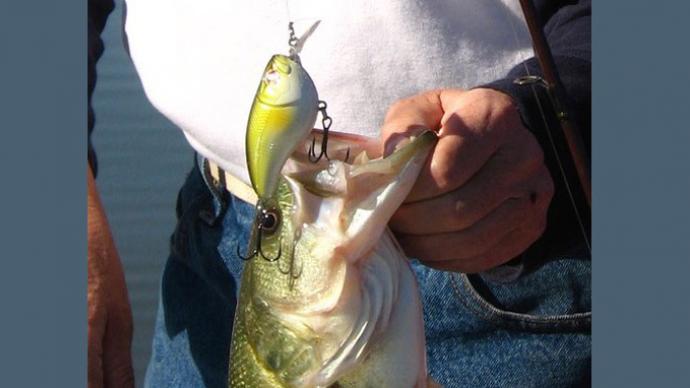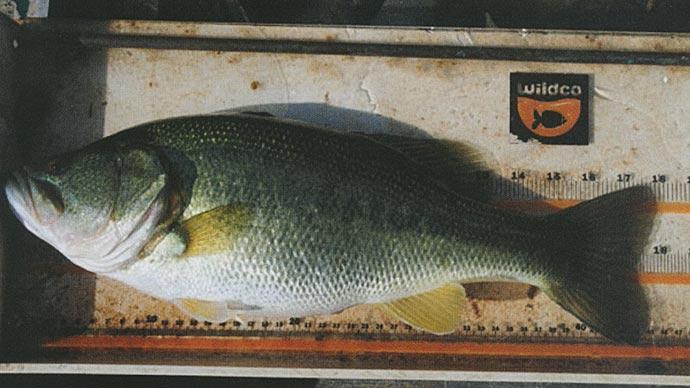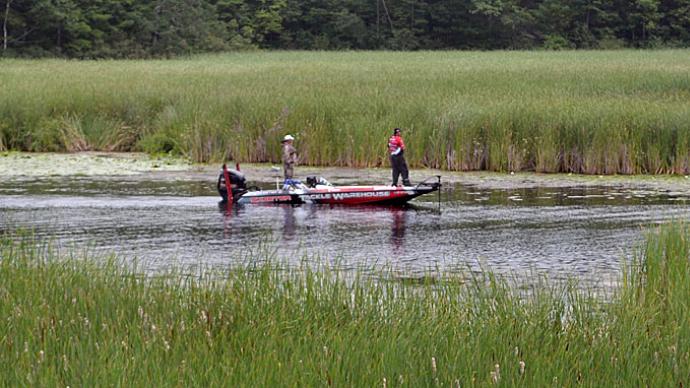Just because we haven't heard of the massive bass die-offs from the largemouth bass virus, don't think it is gone. And don't think there's nothing you can do to help prevent its spread. According to biologist Brett Rowley of The Lakes of Danbury and Dr. Andrew Goodwin Associate Director of Aquaculture and Fisheries Center and assistant professor of fisheries at the University of Arkansas at Pine Bluff, we can all help.
Dr. Goodwin believes that heat and drought have contributed more to the extreme results of the LMBV than any other factor. But both he and Rowley indicate that anglers can slow its spread by cleaning their livewells. Even with all the special meetings called among fisheries professionals, answers about this mysterious killer is yet to be forthcoming. Far less is known about the LMBV than just about any other tragic incident among fisheries in the history of fisheries science. In short, they know very little about the future for fish in lakes where the virus has done damage and little about the virus itself.
Dr. Goodwin does not believe fishing pressure played a major role in the fish kills, but he and Rowley do think that fishermen should begin taking precautions with their livewells. It isn't hard to do.
You'll need a spray bottle with a 10% to 90% solution of clorox to water. That's 10% clorox bleach to 90% of clean water. Spray your livewell down and scrub it with this solution then rinse well with clean tapwater. One thing scientists do know is that the virus can remain alive for long periods of time even in a dry livewell. So simply drying out your livewell isn't enough. You have to kill the virus with the bleach solution.
Now don't think that if 10% is good more is better! Mix the solution as described or you'll end up doing more harm than good to the next fish you put in the well.
Even as our state fisheries managers continued to claim anglers somehow had a hand in the fish kills, we never believed that it was fishing pressure that caused the kills. However it is possible that we could be spreading the virus without meaning to. If you have held infected fish in your livewell and gone to an uninfected lake and placed fish in the well, it's possible to infect those fish. So the best thing you can do to help the fish you catch is clean your livewell with the bleach solution to help prevent the spread of the LMBV. It is after all, far better than doing nothing and expecting miracles from fisheries managers.



